First ride review of the DT Swiss GRC 1100 Dicut 50, gravel wheels for going zoom
Brand new wheels designed for the two faces of gravel: speed and exploration. They’re well designed, but also very expensive
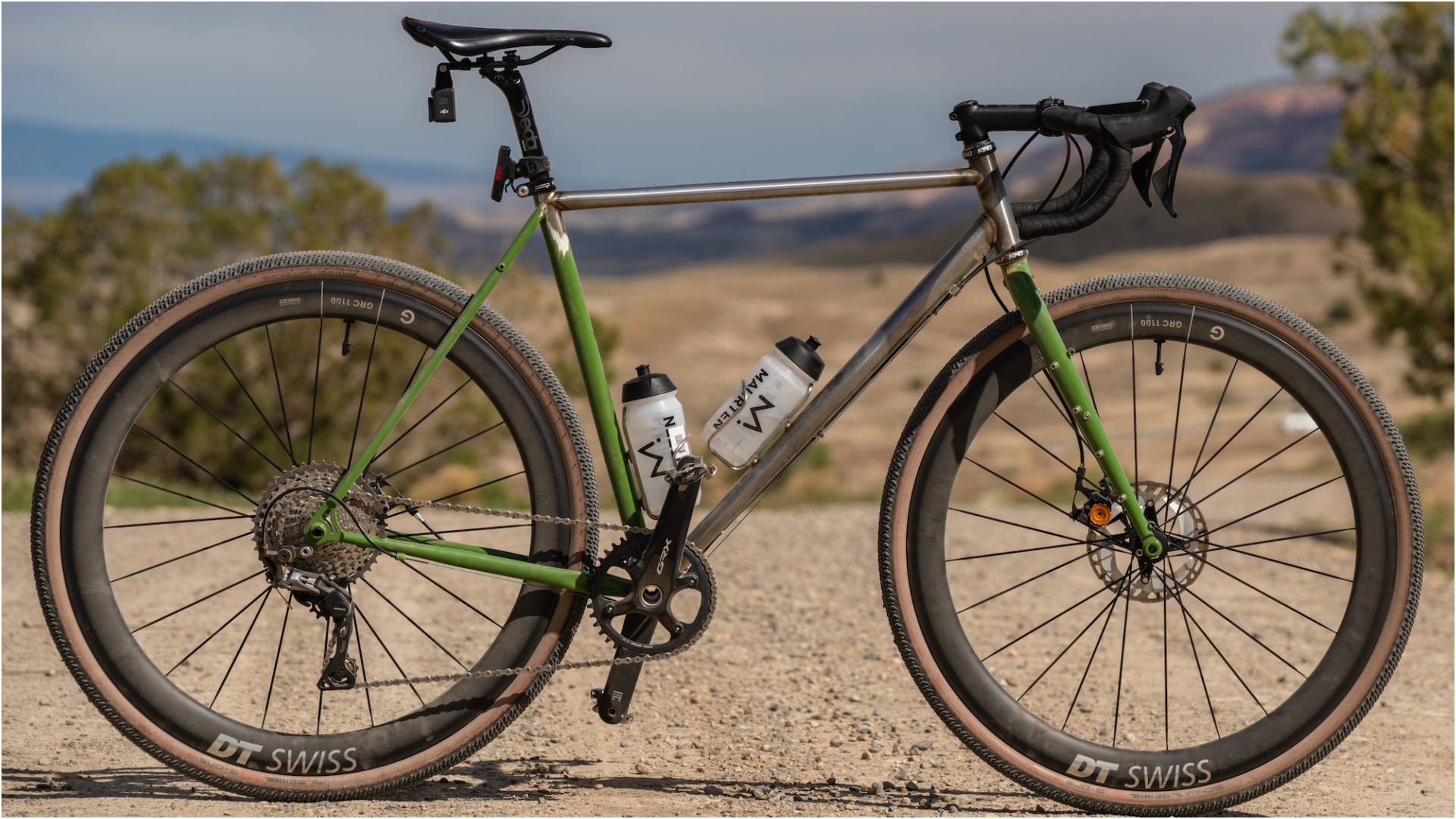
By launching several iterations at once—the GRC 1100 and GRC 1400 in both 30 mm and 50 mm depths—DT Swiss has you covered with excellent hoops whether you want to go fast or go slow. You’ll have to have to pay handsomely for the privilege, however.
-
+
Exceptional performance
-
+
Hooked rim design
-
+
Lifetime warranty
-
-
Extremely expensive
-
-
Not as light as some of the competition
You can trust Cycling Weekly.

“What does it all mean?” This was the first question I asked DT Swiss at the launch event for the new GRC 1100 50 and 30 wheelsets—and I wasn’t having an existential crisis. I wanted to know how on earth to make sense of DT’s naming system. It turns out there’s a method to the madness.
What I learned is that the letters at the beginning denote the product category and rim material. Three letters means high end carbon, two letters means high end aluminum, one letter means entry level aluminum. Then there are the numbers that follow, which express hub type. 1100 or 1200 means DT’s 180 (highest end) hub, 1400 or 1501 means 240 hubs, and so on down the line, with the four different hub options DT manufactures.
Why DT choses these numbers to represent the hub types is a separate conversation, but at least it makes it clear how one would go about deciphering these names. Finally, there’s the descriptor at the end, which refers to the spoke type (Dicut means T-type spokes, FYI).
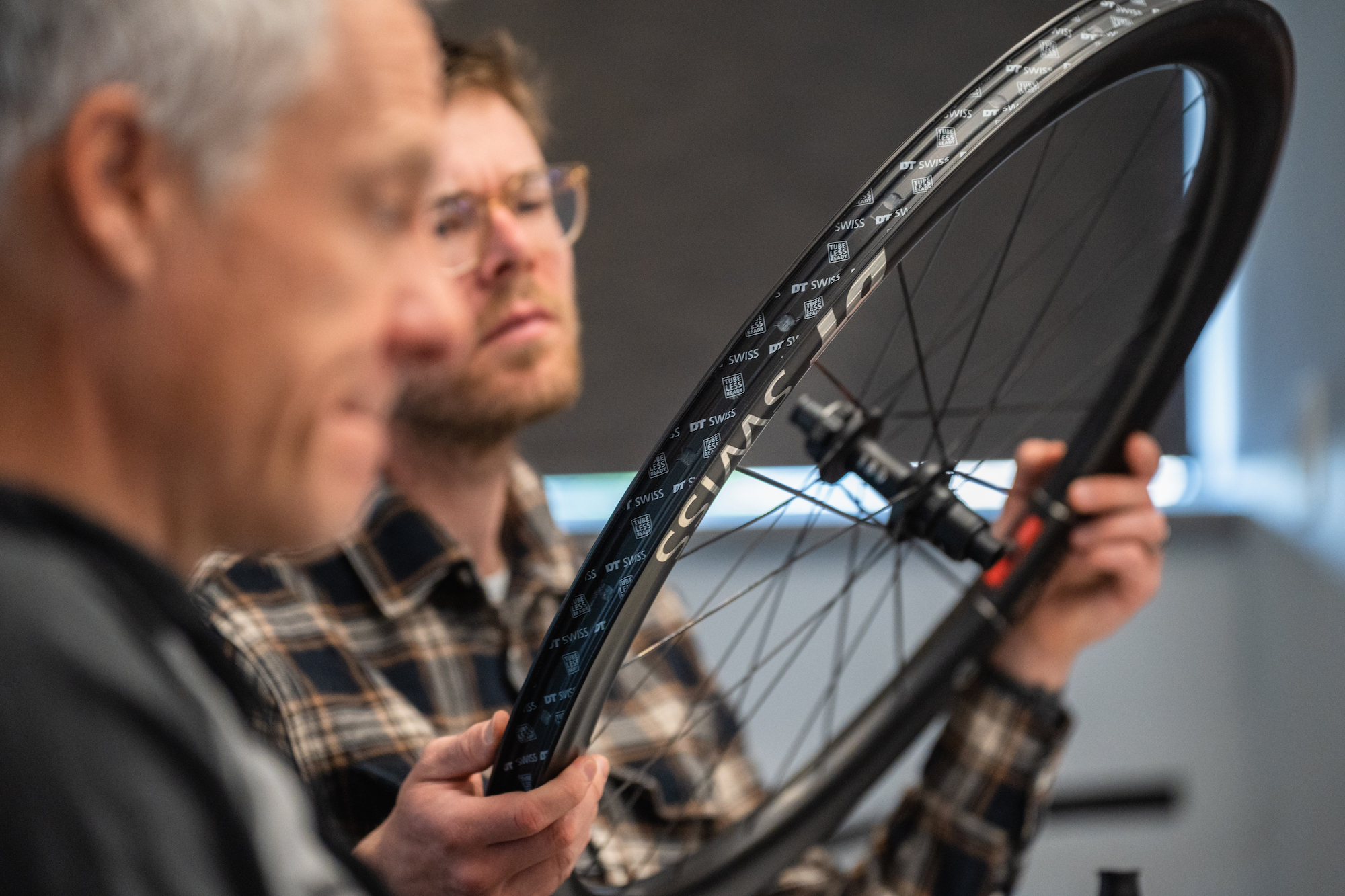
Apologies if I’ve lost you here—for those so inclined, there’s a video explaining it all deep within the recesses of DT’s vast and information-filled website.
Once we established all of that, we had a chance to dive into DT’s newest gravel wheels: the GRC 1100 Dicut and GRC 1400 Dicut, both of which are available in two different rim depths, 30 mm and 50 mm. It seems that in addition to sitting around and discussing newer and more complex ways to name wheels, DT’s engineers have been busy developing new models within the gravel line. DT’s previous carbon gravel wheelset, the GRC 1400 Spline, launched in 2019 as a mid-depth wheelset with hookless rims.
For the new wheels, DT has decided to return to hooked rims, citing, in part, the gap in consumer’s knowledge and comfort with hookless wheels. We had the chance to test both of these new wheels at a launch event in Grand Junction, CO, and I also tested the GRC 1100 50 wheels for several weeks at home in Seattle.
Design Details
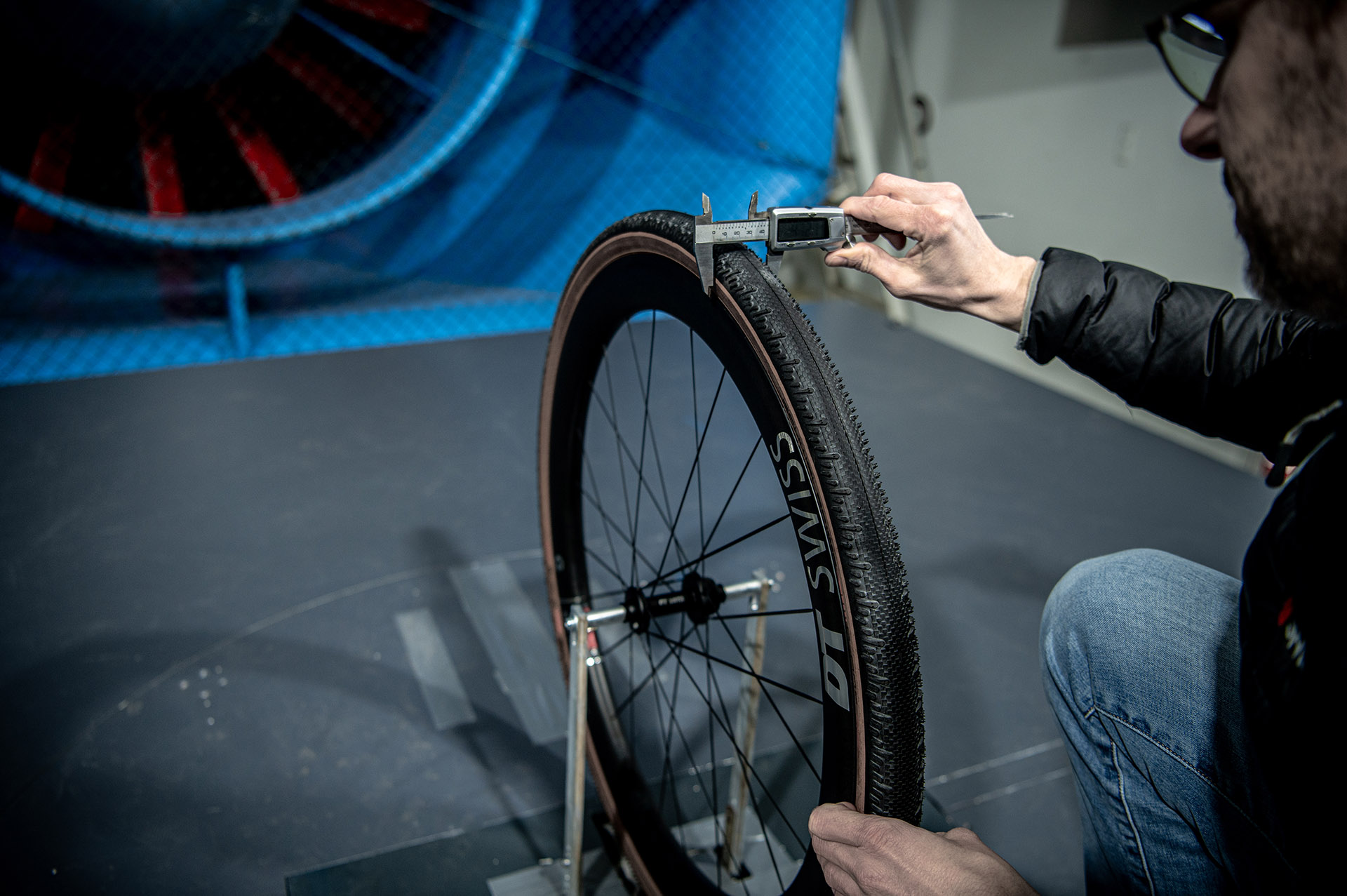
The GRC 1100 wheels feature DT’s 180 hubs with a 36 tooth Ratchet EXP driver. Stated weights for the two depths are 1350 grams (30 mm) and 1567 grams (50 mm). Pricing is $2,999.80 USD / £2299.98 / €2499.80.
DT is positioning the GRC 50 as an aerodynamically-optimized “race” wheel, while the GRC 30 version (which will also be available in 650b) is intended for “adventure.” Both rim designs have an internal width (measured between the hooks) of 24 mm and both iterations are rated for a max system weight of 130 kgs.
DT Swiss uses the same rim profiles for both the 1100 and 1400 series wheels. The GRC 30 rims have quite a straightforward U-shape and max out at 31 mm wide. The GRC 50, however, gets the addition of some intriguing shaping—the upper part of the rim (where a brake track would be) is concave, before ballooning out to a massive 36.5 mm wide. DT Swiss claims they do very well against the competition in a wind tunnel, though this has not been independently verified.
DT Swiss’s 180 hubs are the company’s top end road offering and are incredibly thin and svelte—appearing barely larger than a 12 mm thru axle in between the spokes. Significant (though not extreme) weight-saving measures, like removing teeth on the centerlock disc brake interface, show up on the scale: a front hub weighs a scant 92 grams, less than half that of some of DT’s competitors.
The 1400 level version uses DT 240 hubs which add roughly 70 grams to each wheelset, but bring the price down, slightly to $2,399 USD.
On (and off) the road

I spent several weeks riding the GRC 1100 50 series wheels. The first thing you notice about them is the width—at 36.5 millimeters wide they are BIG. DT rates them for use with tires as narrow as 29 mm, and while I didn’t have the chance to test this out, it would certainly look a bit unusual mounted up.
The rims are optimized around 40 mm gravel tires. I tested out a few different options, spending most of my time on 45 mm gravel tires and 35 mm slicks. On these rims, the 35 mm tires ballooned out to be almost exactly the same width as the rims. They felt exceptionally fast at speed, really coming into their own above 40 kph. 35 millimeter tires are as narrow as I ride these days, and I found myself marveling at the way they rode on these rims—a great combination of speed and stability.
As a lighter rider, I often am uncomfortable on deeper wheels in crosswinds. I expected the same here, but had no issues at all on the GRC wheels, which I chalk up to the shape. It should be said that with a wider tire, there’s even more surface area for wind to push a wheel around, but somehow, it works.
DT’s 180 hubs performed flawlessly, and I particularly enjoyed how easy it was to swap rotors. Because of the cut-outs in the centerlock brake interface, rotors never got stuck on the wheels, which is one of my pet-peeves.
I would say that if you’re in the (possibly small) subset of people chasing marginal gains both on road and off, this wheelset could very well pull double duty. They would be at home with 32 mm tires in a road race and could be mounted with chubby gravel race tires a week later and perform admirably there as well.
Value and Conclusion
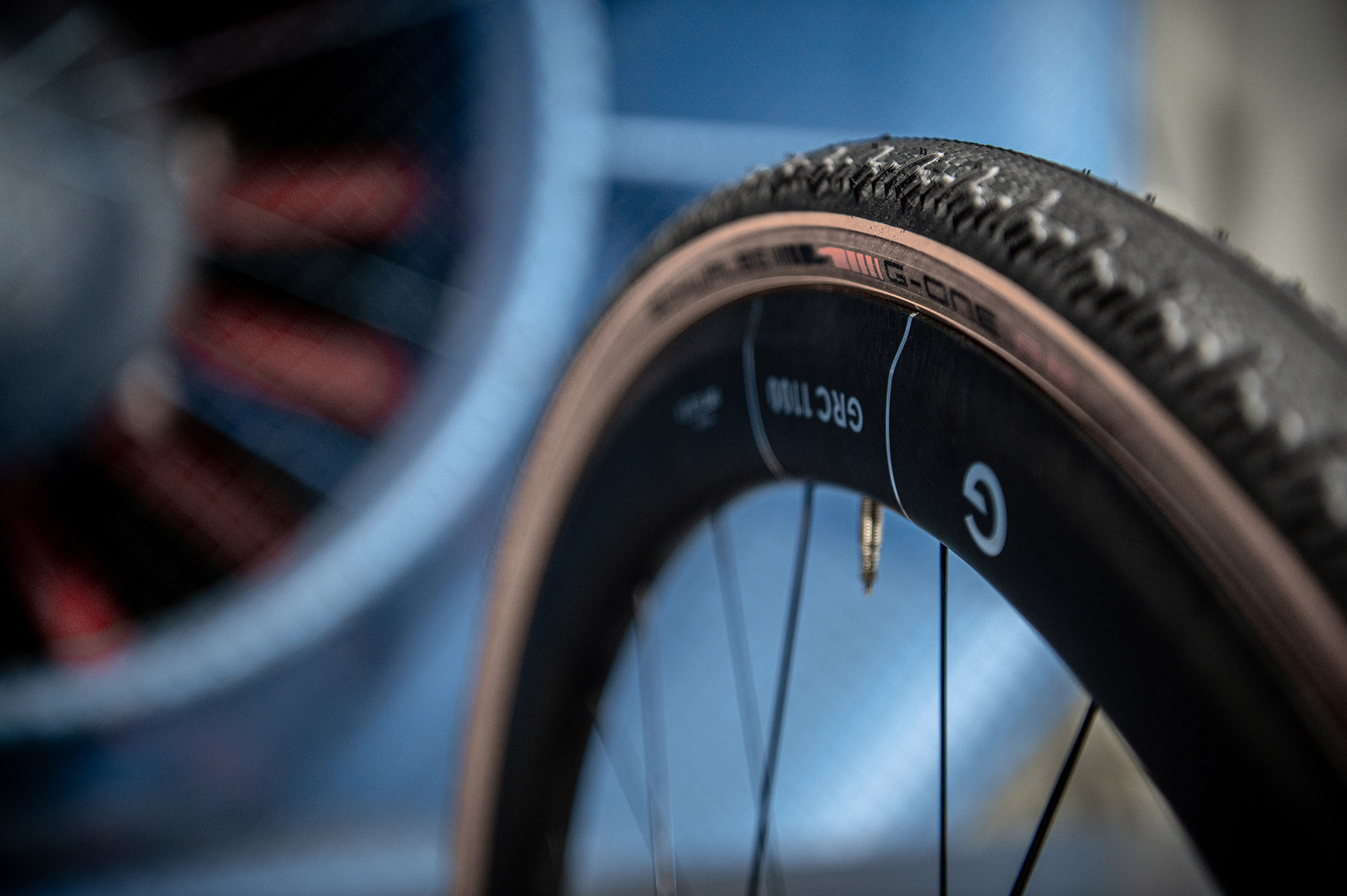
Gravel race wheels are an interesting niche to discuss. At the moment, the market seems to be a mixture of deeper, narrower road wheels and wider, shallower gravel wheels without all that many options in the middle. Gravel race tires are rapidly getting wider, and so far, I’m not sure rims are keeping pace.
At the pointy end of gravel races, aerodynamics are a deciding factor in races. DT’s new GRC wheels are excellent from both a performance and engineering standpoint, but they are eye-wateringly expensive, very much at the top end of the market. There are few gravel specific wheels in this upper echelon—Cadex’s AR 35 wheels come in right around the same price point, but are significantly lighter at 1,270 grams (though the 1350 gram GRC 30 is probably a better direct comparison here).
I can understand the price justification for the GRC 50 wheels, where people will pay for speed, but I just don’t know how much of a market there is for $3000 adventure wheels like the GRC 30s. It would make more sense to me to offer only the GRC 50 in the 1100 series, and have both the GRC 50 and 30 offerings available at the 1400 level. At $2400, they’re still very pricey, but slightly closer to reality for most riders.
These are top-notch wheels backed by DT Swiss’s excellent warranty, but they’re simply too expensive for most people to get a chance to experience them.

Thank you for reading 20 articles this month* Join now for unlimited access
Enjoy your first month for just £1 / $1 / €1
*Read 5 free articles per month without a subscription

Join now for unlimited access
Try first month for just £1 / $1 / €1
Get The Leadout Newsletter
The latest race content, interviews, features, reviews and expert buying guides, direct to your inbox!

Tyler Boucher is a former (and occasionally still) bike racer across several disciplines. These days, he spends most of his time in the saddle piloting his children around in a cargo bike. His writing has appeared in magazines published in Europe, the UK and North America. He lives in Seattle, Washington.
-
 'This race is absolutely disgusting': Peloton reacts to another brutal Paris-Roubaix Femmes
'This race is absolutely disgusting': Peloton reacts to another brutal Paris-Roubaix FemmesNow in its fifth edition, Paris-Roubaix Femmes is still a tough race, even for the best bike riders in the world
By Adam Becket Published
-
 ‘It’s the biggest win of my career’ says João Almeida after crushing Itzulia Basque Country success
‘It’s the biggest win of my career’ says João Almeida after crushing Itzulia Basque Country successUAE rider wins the final stage to finish almost two minutes clear of Enric Mas on GC, with Max Schachmann in third
By Peter Cossins Published
-
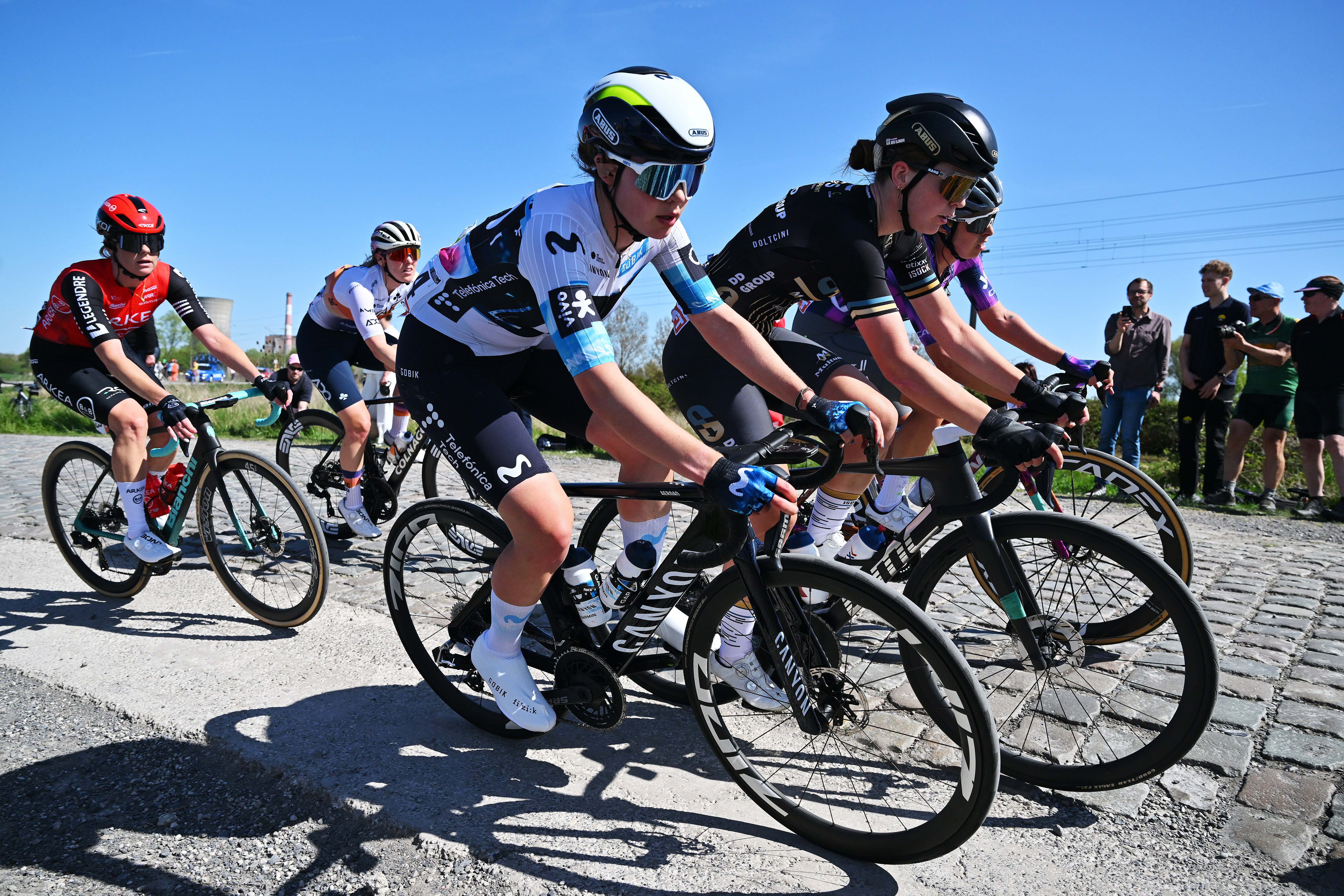 'I have an exam in a month and a half' - Carys Lloyd becomes Paris-Roubaix's youngest ever rider
'I have an exam in a month and a half' - Carys Lloyd becomes Paris-Roubaix's youngest ever riderBritish teenager and A-Level student makes it to the velodrome on debut
By Tom Davidson Published